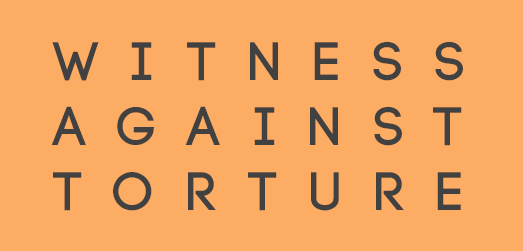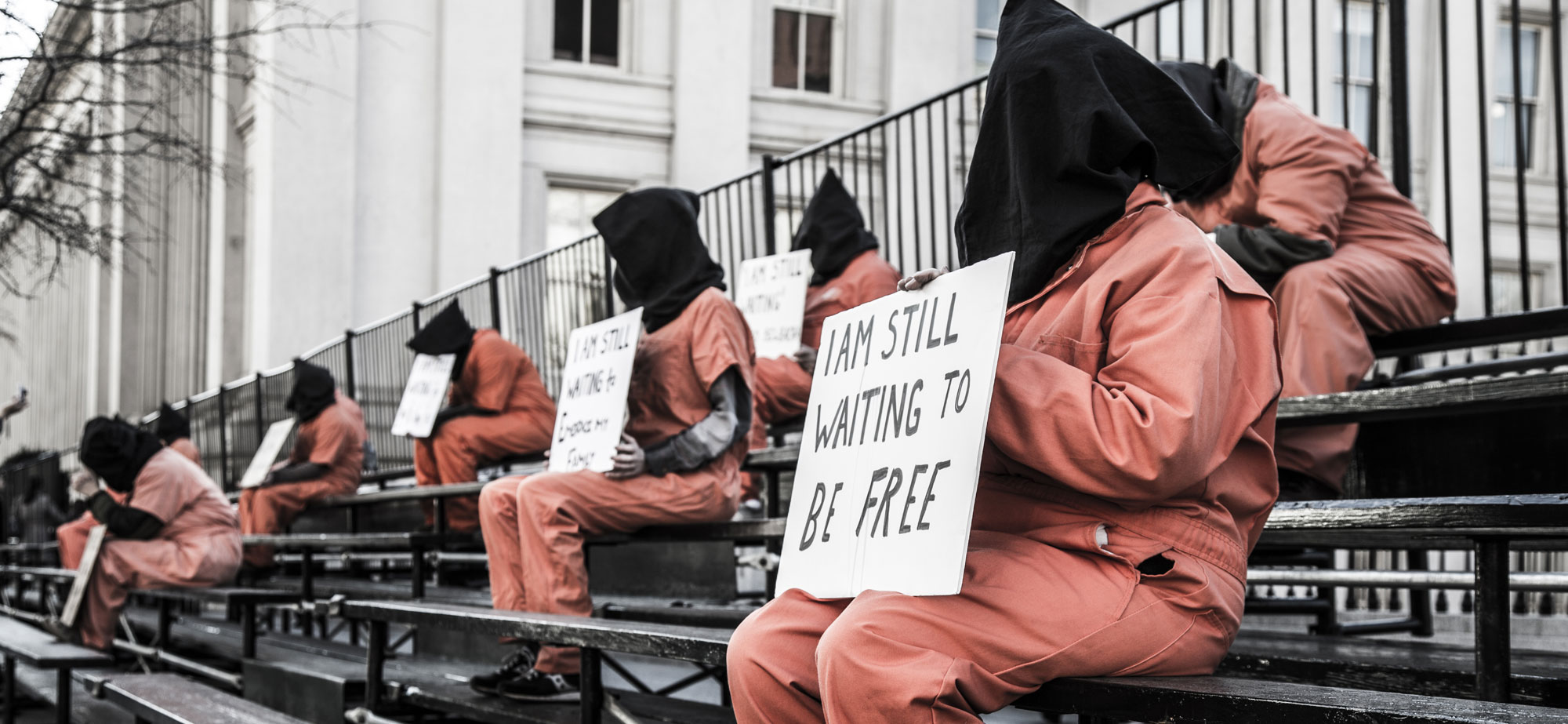From the Archive
WAT Featured in Oct-Nov Issue of Race & Class
Witness Against Torture is featured as the cover story for the latest issue of the academic journal, Race & Class. Reprinted here with permission from the author, Chandra Russo, is an excerpt from the beginning of the article.
Abstract: The Guantánamo Bay detention camp is a quintessential structure of the US national security state and contemporary Empire. For such imperial formations to proceed as if they are ‘normal’ requires solidarity from various publics. This paper explores what it means to refuse such solidarity through an ethnographic examination of Witness Against Torture (WAT), a group of US citizens enacting solidarity with the men detained at Guantánamo. WAT’s tactical repertoire intervenes in three ways. The Guantánamo prison is not supposed to be seen, but WAT travels there to expose state secrets and the administration’s myth of transparency. The prisoners are not supposed to be heard, but WAT publicly amplifies their testimonies through affectively potent street performances. Indefinite detention and torture are meant to remain distant, but WAT links the plight of detainees to that of Black communities in the US interior. Through these acts, WAT simultaneously reveals and contests the culture of erasure and radical divisiveness upon which the US national security state depends.
Fahd Ghazy has been held at Guantánamo for 13 years.
He has never been charged with a crime.
— Fahd Ghazy in His Own Words, Witness Against Torture film, January 2015
On a January morning in 2015, so cold that it burns their faces despite the bright sun, a group of twenty has gathered in front of the White House. Many wear orange jumpsuits, some with black hoods. They are spectres of the now infamous images of Guantánamo detainees, kneeling in the dirt behind barbed wire fences: the indefinitely imprisoned.
This group, Witness Against Torture (WAT), has been engaging in protest per- formances such as this one in Washington, DC, New York City, Chicago and elsewhere, for a decade. Today, they have convened to tell the story of Fahd Ghazy, a Yemeni national and Guantánamo detainee who was captured at the age of 17, likely for a bounty.1
At the end of November 2014, after twelve years of being held without charge, Ghazy wrote an appeal to the American public and gave it to his attorney at the Center for Constitutional Rights to share.2 His is a heart-rending story, if hardly unique. Ghazy is one of eighty-nine men still being held at the Guantánamo Bay mili- tary prison.3 While cleared for release both under the Bush and Obama administra- tions, Ghazy’s detention remains indefinite – in large part because he is from Yemen, a nation with which the US government has a particularly embattled relationship.
With a single microphone, a portrait of Ghazy’s face painted on a queen-size bed sheet, and the orange jumpsuits, WAT calls out Ghazy’s words for all to hear: ‘It hurts me that I do not have the privilege to express myself. I want to have the honor to speak out in my own voice and reach you directly – you who are thinking people.’
One by one, members of WAT take the microphone: young, old, male, female, Latino, Arab, White, Christian and Muslim. They amplify Ghazy’s words; they make his plea known. Ghazy’s testimony speaks of missing half a lifetime of cher- ished experiences, the births, weddings and funerals of his loved ones. He speaks of his parents, robbed of their son, his wife, robbed of her husband and the father of her child. He speaks of his daughter, Hafsa:
I have missed the best moments a father could ever enjoy: Hafsa’s first steps; walking her to school; witnessing her successes; helping her when she stum- bles … I am starving for those moments, when she looks at me and smiles or says a kind word or laughs.
Ghazy’s words choke a bit. There is pain in the voices of those who deliver them. In front of this iconic building that once housed Bush’s administration and now Obama’s, both of which have held the power to close Guantánamo, the witnesses convey Ghazy’s closing words. ‘Now that you have heard my story and seen my dreams, you cannot turn away. You are excused only when you do not know. But now that you know, you cannot turn away.’
To read the full version of this very worthwhile article, please visit the Race & Class web site.



Join us on social media